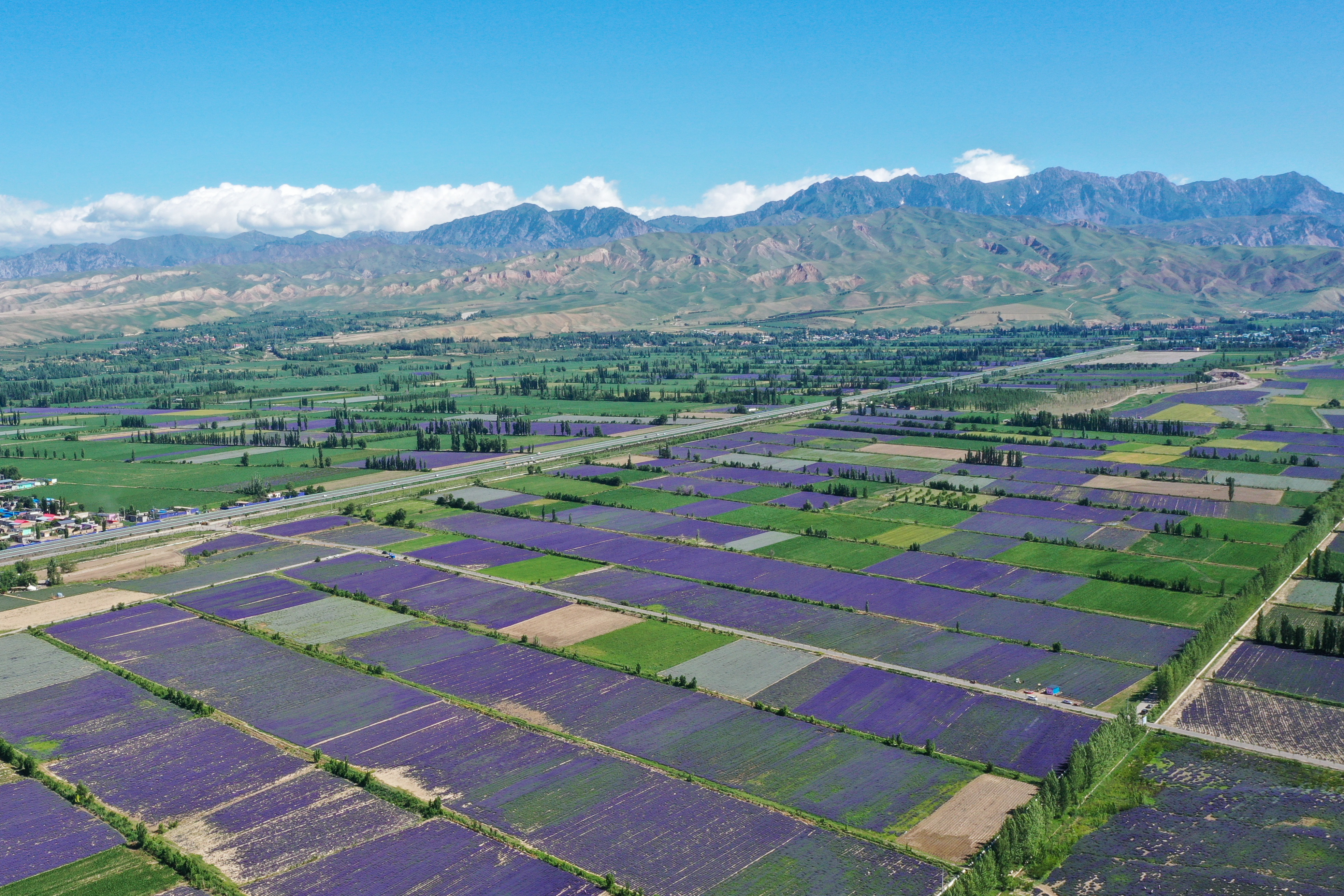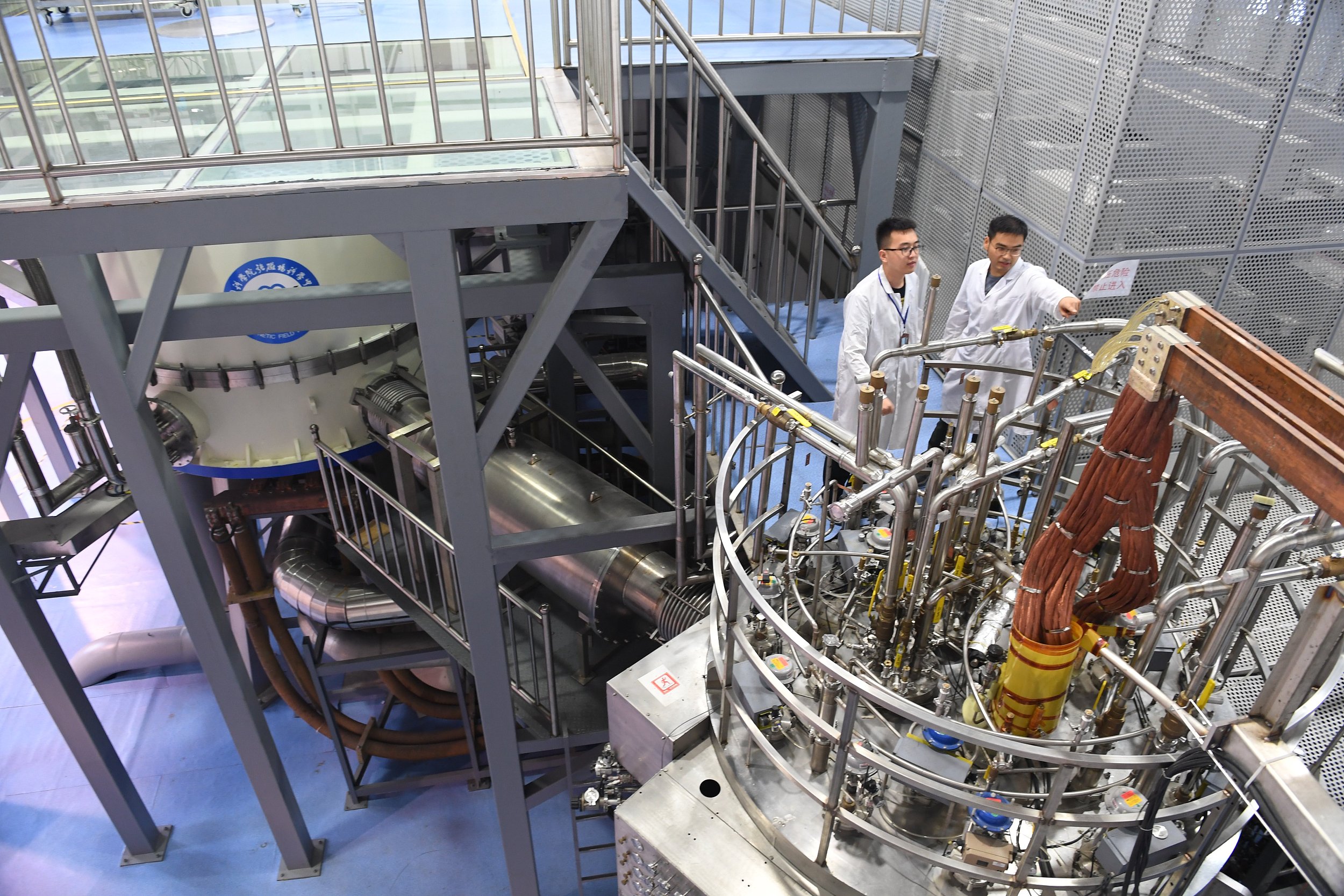Lavender Transforms Fortunes of a Xinjiang Village
By LI Linxu
From a land of rocks to fields of flowers, lavender has helped transform the fortunes of Sigong village in northwest China's Xinjiang Uygur autonomous region.
Owing to the beautiful scenery of lavender flowers, tourists have begun flocking to Sigong in recent years, creating new jobs and bringing business opportunities to the village.
It is a tremendous change, said Ma Yu, the first secretary of Sigong village, noting that while in the past, the village was known for its sterile soil and poverty, now it has become a destination bustling with tourists and young people.
Fields of lavender at Sigong village in Xinjiang Uygur autonomous region. (PHOTO: XINHUA)
In 2022, the average income per villager reached 22,000 RMB in Sigong, about 10 percent higher than the average income per capita in its located town.
Situated on the same latitude as Provence in France, the village shares similar meteorological and soil conditions with its French counterpart, making it possible to become a lavender production base.
At first, some villagers had concerns about whether lavender could be viable, said Pan Lin, secretary of the Sigong village committee of the CPC, also one of the first villagers to plant lavender.
The tentative move to plant lavender has seen a very encouraging outcome, with higher income than traditional crops and a growing number of sightseers.
As a result, more and more villagers joined the call to plant lavender. Now, the village has 12,000 mu (about 800 hectares) of lavender farms and become a well-known tourist resort.
Smelling the business opportunities, Ma Zhongliang renovated his home to accommodate and entertain growing tourists. He even called back his two daughters who worked in the city to help out in his thriving business.
"Thanks to lavender and related businesses, our lives have changed," said Ma.



